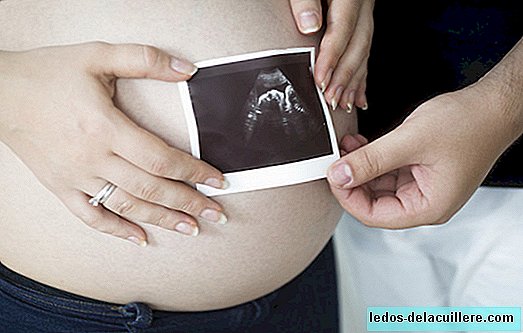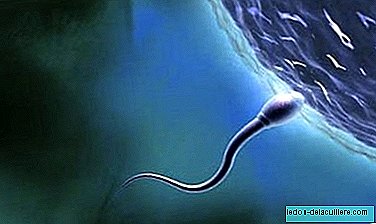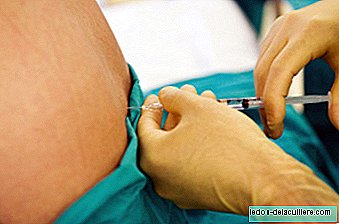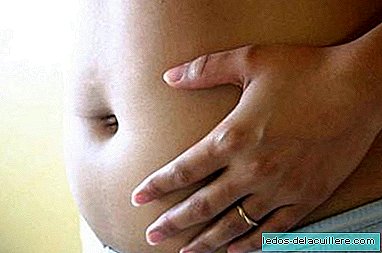In Spain, after an amniocentesis test confirming the diagnosis, 90% of children with Down syndrome are aborted before 22 weeks gestation. Amniocentesis is a non-risk-free invasive test, despite being minimal, it is estimated between 0.2 and 0.5% the chances of having a miscarriage after puncture, which is one in 200 cases .
But at present, it is possible know if a baby has this chromosomal abnormality with a simple blood test, a non-invasive test that although it is not available to everyone (it is done privately), allows to detect with almost 99% accuracy in the first weeks of pregnancy if the baby has Down syndrome. However, this generates a great controversy, since for many people this could mean the end of the disorder.
Down's Syndrome

The World Health Organization (WHO) estimates that one in 1,000 or 1,100 babies are born with Down syndrome worldwide. It is a condition characterized by the presence of an extra copy of chromosome 21 (or a part thereof), instead of the usual two, so it is also called trisomy of par 21.
The causes that cause chromosomal excess are not known exactly, although it is statistically related to a maternal age over 35 years, a condition also growing in our society.
People with Down syndrome have varying levels of learning difficulty and, due to the excess of proteins synthesized by the chromosome, they are more likely than the general population to suffer from some diseases, especially of the heart, digestive system and system. endocrine.
Due to the accuracy of prenatal tests, births of children with Down syndrome have decreased significantly in recent years, which could indicate that the disorder is disappearing.
Prenatal tests, double-edged sword

Scientific advances allow the detection of increasingly accurate chromosomal abnormalities with minimal intervention. Amniocentesis is currently the most widely used test to detect chromosomal abnormalities in the baby, but invasive tests such as this and the analysis of chorionic villi, may have the days counted.
In recent years, a non-invasive test of high accuracy has been developed to identify this condition in the first trimester of pregnancy. It is performed with a simple sample of the mother's blood and analyzes the chromosomal status, allowing the detection of Down syndrome, Edwards syndrome and other fetal abnormalities in the first weeks of pregnancy, and more accurately at 12 weeks.
People who do not consider abortion do not undergo some of them, such as amniocentesis, which in turn already implies a risk of abortion due to the aggressiveness of the test. Once the diagnosis is revealed, it is the parents' free decision to continue or not with the pregnancy.
Will Down syndrome disappear?
There are those who believe that the new advances could lead to even more abortions, and that in the future the down syndrome will end up disappearing. But the truth is that Not all women are willing to undergo invasive testing to confirm the diagnosis or have the possibility of paying for a non-invasive test (in Spain the test is priced at 545 euros and extended, costs 725 euros).
Upon knowing the diagnosis, the couple is free to decide whether or not to continue with the pregnancy. But the truth is that there are still about ten percent of couples who decide to go ahead with gestation and have your baby with Down syndrome. We have known stories of couples who felt fear and confusion at first and were about to abort but then regretted it. Too there are those who do not consider abortion and do not even undergo any test To confirm.
My experience
In my second pregnancy, I had a high-risk triple screening result and although I was under 35, amniocentesis was recommended to confirm it, but I decided not to do it. I was not willing to expose myself to a risk of abortion and although it was not easy to decide, I was convinced that I would also have my baby, even if I had Down syndrome. That was my choice, but it is a very personal decision that must be valued by the couple taking into account the circumstances of each family.
Children that inspire

A few days ago we met Sofia, a seven-year-old girl who gave everyone an inspiring message. She was abandoned by her parents at birth and adopted by a family of three children, the youngest also with Down syndrome. The girl said that "Down syndrome is not scary, it is exciting."
Another inspiring story was that of this father who says that Dowb syndrome is the best thing that happened in his life and that of this other, Alan Lawrence, photographer, blogger and father of six children, who wants to make the world aware of the syndrome Down












